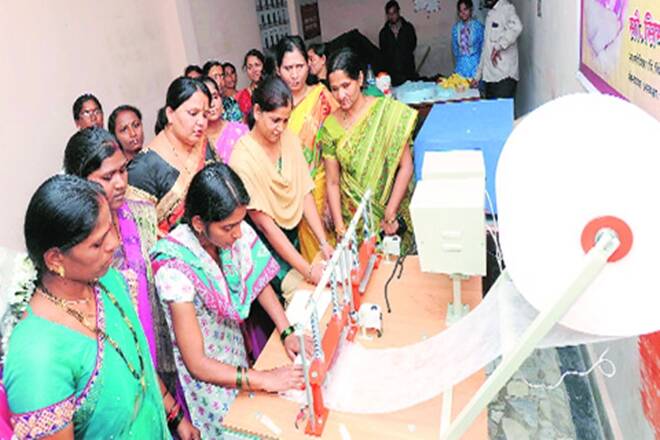Bihar has become the first state in the country to have 10 lakh self-help groups (SHGs) managed by women. The groups have been functioning under Jeevika, a World Bank-supported poverty alleviation programme operational in the state since 2007 to empower women and make them self-reliant.
”Jeevika model ensured empowerment of women in big way”, said Arvind Kumar Choudhary, principal secretary, rural development department. The project was very closer to the heart of chief minister Nitish Kumar and the Jeevika model has ensured financial inclusion and empowerment of women in a big way. Covid-19 pandemic also couldn’t stop the women of Jeevika worked as bank correspondents and ensured over Rs 543 crore worth transactions through POS machines to take banking to the doorsteps of the needy people in the remotest corners of the state. Besides, it reached out to 1.09 crore households to create awareness, extend a helping hand for relief work, food security, work on sanitation etc.,” he added.
Government has designated Bihar rural livelihood promotion Society (BRLPS), an autonomous society under the rural development department of the state government as the State rural livelihoods Mission to scale up the ‘Jeevika’ model in all 534 blocks of 38 districts under the national rural livelihood Mission (NRLM). It has promoted sustainable livelihood and financial inclusion through women-based community institutions and enterprises.
”Nearly 1.20-crore women had got involved with over 10 lakh SHGs”, said Balamurugan D, mission director, NRLM.
” They gave a new definition of women empowerment in rural area. They have availed Rs 12200 crore worth loan from banks so far to start their own income-generating activities and repayment has been timely. They have repaid loan worth Rs 5,000 crore to avail fresh loan. They also have Rs 1,350 crore worth savings for inter-loaning amongst its members,” he added.
He also mentioned that these SHGs under Jeevika programme have been helping over 45 lakh households during the Covid-19 pandemic.
Jeevika, During Covid-19 pandemic, has benefited 45.5 lakh households through its various activities, such as production of 2.14-crore masks, running ‘Didi in Rasoi’ outlets to serve food to quarantined people and in-patients, disbursal of Rs 350 crore worth loan to village organisations for food security and health risk mitigation, running community-led rural retail shops for supply of essentials and organising community professionals for extensive campaigns,” he said.
Apart from financial inclusion of a strong women workforce, their services were useful for other various social campaigns and initiatives of the education, health and welfare departments which has been used by the government.
“This is a model that can take Bihar miles to achieve self-reliance in the true sense, something that India dreams to achieve. Bihar has shown how it could be done. This has been a very positive initiative. All that is needed is to integrate the activities of SHGs and give them further opportunities for scale up to also become employment generators in the rural areas, which would further give a boost to the state economy,” said former director of AN Sinha Institute of Social Studies.





